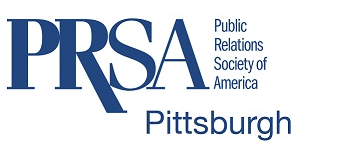Cultivating an accessible, diverse and inclusive PR community
by Bre Zboran
D&I Committee Member
The lack of diversity in the PR industry is staggering. According to the Bureau of Labor Statistics, women hold over 72.8% of PR management jobs, but only 10.7% of those roles are held by Black women and 3.1% are held by both Asian and Hispanic/Latino women.
Resources like PR Girl Manifesto—an inclusive community of over 40,000 PR professionals—can make a difference by empowering emerging and current PR pros to use their abilities to transform the industry, change the narrative and create a future of equitable and inclusive opportunities for all women.
Taylor Fife, PRSA Pittsburgh’s diversity & inclusion chair, had an inspiring conversation with brand strategist and founder of PR Girl Manifesto and AB MEDIA GROUP, Fatou Barry. During “Empowering Tomorrow’s PR Leaders: PR Girl Manifesto Joins PRSA Pittsburgh for Black History Month,” Barry spoke about her experience as a young Black woman in PR, how brands and employees can foster a diverse and inclusive community, the importance of self-care, and actionable advice for aspiring PR professionals.
Recognizing the power of community
For Barry, post-grad wasn’t as easy and linear as people made it seem. She felt unprepared, that there weren’t enough resources, and that she was both learning and working at the same time. Realizing that she wasn’t alone, Barry created PR Girl Manifesto as an accessible, community-centered platform that provides an equal foundation for learning and growing.
“We work to eliminate barriers of entry instead of creating them,” said Barry.
PR Girl Manifesto also caters to those who might not have a linear path in the industry.
“PR and communications can make you feel like you have to follow a certain trajectory to be successful. We recognize that that’s not the case at all,” said Barry. “People are coming from other industries and wanting to find a career in PR. They’re individuals who might not even have had the opportunity to go to a two-year, let alone a four-year college, to learn all of these things.”
Navigating the PR industry as a young Black woman
When Barry graduated college in 2014, there was pushback to young and innovative ideas. The industry leaned toward traditional PR, and it wasn’t as acceptable to be a multifaceted PR professional. On top of those challenges, she also felt like she had to overcompensate to be respected.
“I was experiencing a lot of ageism as a young Black woman in this industry where my ideas were second-guessed,” said Barry. “I always had to prove myself or always had to give 200% to prove that I was providing value.”
This experience influenced how Barry navigates the PR Girl Manifesto community as she works to break down the barriers of what a traditional PR pro looks like.
“I wanted to prove to myself and to others that you didn’t need to look a certain way, that you didn’t need to behave or value certain things to be successful in the industry, and that you can really do things your own way,” said Barry.
Implementing D&I practices during Black History Month and beyond
There’s not a one-size-fits-all D&I approach for brands, but for the ones ready to take it seriously, initiatives have to start at the company’s foundation.
While people are quick to post Black History Month content or make comments on racial inequity, it’s important to first ask the following the questions:
- Are you pulling from a diverse pool of candidates when hiring?
- Do you make an effort to utilize diverse vendors?
- Do you value the diverse voices in your company?
- Does this reflect where the company stands internally?
“For brands who are looking to foster diverse and inclusive communities, it has to be a goal,” urged Barry. “It has to be ingrained in the bottom line—that at the end of the day, this is something that’s important to us and that reflects itself in everything that we do.”
To help hold companies accountable, employees should keep track of everything upper management has said—or hasn’t said—about their commitment to D&I. Benchmark the things that you feel are lacking, and be upfront about it.
“Allyship is great, but we want you to be an accomplice,” said Barry. “Being an ally is ‘I empathize with you.’ Being an accomplice means ‘I’m committed to doing this work with you.’
Prioritizing self-care in PR
As PR pros, we’re expected to be always on and connected—going above and beyond for our jobs and clients. Yet, many people don’t talk about the toll this takes on our mental health. Barry once wore her exhaustion, stress and anxiety as a badge of honor because she felt it meant that she was a hard worker. Now, she’s using her platform to actively dispel this narrative.
“You deserve to rest. You deserve to be happy. You deserve to feel like you have a life outside of your work,” said Barry. “For us, it’s so important to get that type of content out there because we know that a lot of people aren’t hearing that anywhere else.”
Her biggest self-care tip? Set boundaries. This could mean not checking your email between certain hours of the day or not taking calls before or after a designated time. It’s important to communicate these boundaries to others so they understand how best to interact and engage with you.
Sharing advice for young women and women of color in PR
- You deserve to be here “Not believing that you deserve to be somewhere will keep you stuck, will keep you playing small. When you get an opportunity, do not second-guess it. You’re getting the opportunity because you deserve it and you’ve shown you deserve it,” said Barry. Young women and people of color often feel like they continually have to pay their dues even long after they’re paid, and that there’s always another level they need to reach. However, Barry shares an important reminder: “You cannot let people who are committed to making you second-guess yourself be the barometer for how you view what you’re doing and your work.”
- Follow as many industry publications, podcasts and platforms as possible. This not only includes PRWeek, Cision and PR Daily, but also other platforms such as Before You Hit Send and Publicist.co. Ingrain yourself in the industry as much as possible.
- Don’t be afraid to ask PR pros for help. Barry is passionate about breaking down the narrative that PR pros don’t engage with or can’t help each other. “We’re a community, we’re a network,” she said. “I think we need to lean into that.”
- If you want to create your own agency, work at an agency first. This experience and knowledge will help you figure out the best systems of procedure, how to handle certain situations and how to structure things in a sustainable way.
Taking action
One of the most important takeaways is that if you see something, or if it feels uncomfortable or wrong, call it out.
“Even if I don’t verbally say something, if you know that it’s affecting me, if you see me making myself small because of something that I’ve experienced or something that clearly showed inequity, that’s your moment to stand in the gap,” said Barry.
As communicators, we also face an added responsibility when it comes to speaking up.
“We know what it looks like to communicate, we know how powerful communication is—so why would we ever be the ones to stay silent, when we know the power of stories, words and language?” asked Barry.
Additionally, it’s important to commit to understanding for the long term, especially since racial inequity doesn’t always look the same in every circumstance.
Check out the inclusive and empowering PR Girl Manifesto community on Instagram, Twitter, Facebook and LinkedIn.





Trackbacks & Pingbacks
[…] a follow up to PRSA Pittsburgh’s 2021 virtual Black History Month event which featured Barry, Megha Pai, PRSA Pittsburgh D&I committee member, sat down again with the […]
[…] community for communication professionals. Fatou Barry is the founder, and she was on a recent PRSA Pittsburgh event where she discussed being a young black woman in PR. She is really inspiring and her Instagram […]
Leave a Reply
Want to join the discussion?Feel free to contribute!